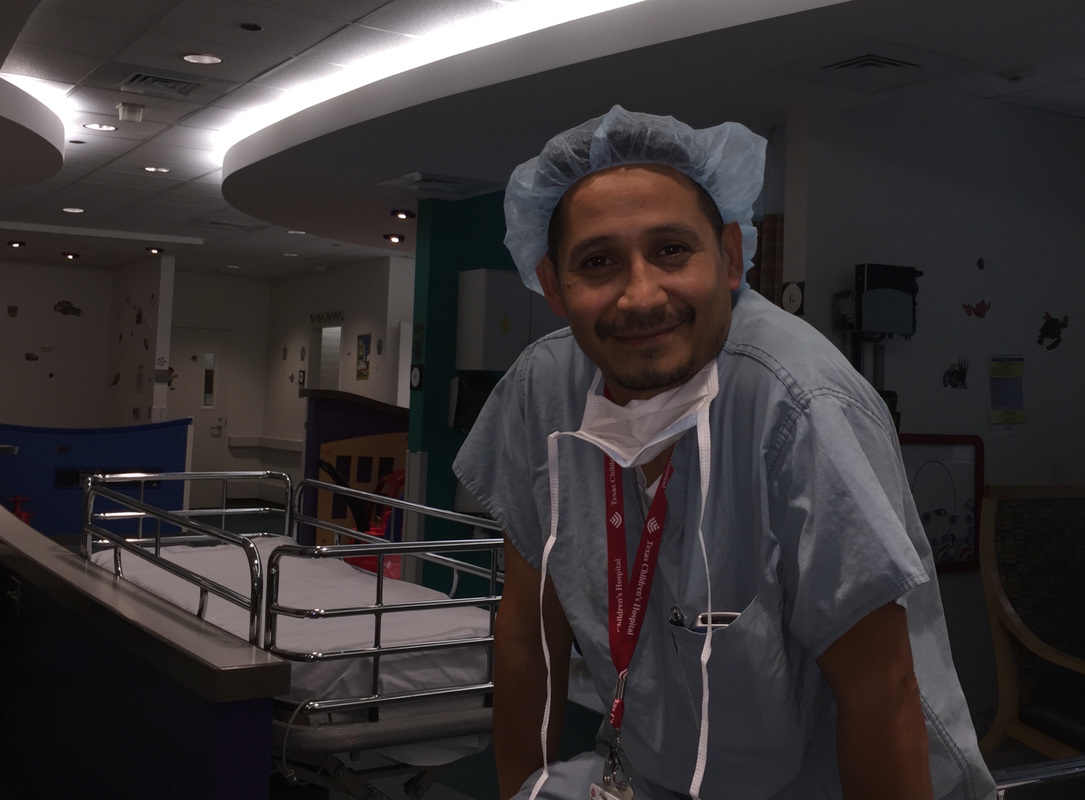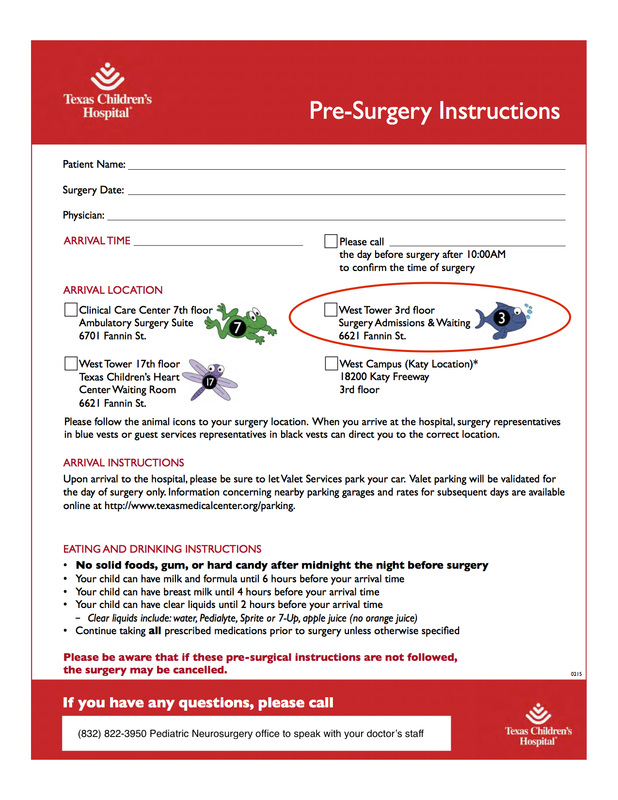|
Parents voice how much they appreciate Eric and Donald, our hospital's patient liaisons for the operating rooms. Every day, the personable pair, otherwise known as patient ambassadors, tirelessly communicate between the operating rooms and the families in waiting. They check on surgeons' progress and keep families posted on their children's surgeries throughout the day and into the evening.
Families receive information and draw reassurance from our liaisons while we concentrate in the operating room. It is a team endeavor. Caring about parents is a part of caring for children: it is a family journey. One recent evening, I ran into Eric around the operating rooms as usual, taking phone calls on his hospital phone, waving at passing surgeons, and attending to families - sometimes providing a reassuring nod, sometimes lingering for longer conversations. He has a special way with people, from doctors, nurses, staff, patients, parents to grandparents -- everyone. I set out to interview Eric, and learned more about the story behind the wonderful ambassador. Me: Eric, you are a terrific "people-person". You keep track of my patient's families, try to keep them from worrying too much, and make sure they are informed. You always help me find them right after surgery so I can speak with families in person. You are clearly so dedicated to this job. Why do you do what you do? Eric: I love my job. I get to help people and make a difference every day, in any way I can. I have personal experience, so it is meaningful to me and makes me work even harder. I can understand what families are going through. Four years ago, my wife and I were waiting in a hallway at an unfamiliar hospital for 15 hours while our daughter was in surgery. She was in a trauma and had to undergo emergency surgery. We were so worried, so alone. We had no idea what was going on, It was horrible. I do not want any parent to ever, ever have to have that experience. We went through it, and I will not let that happen to anyone else as long as I am here. Me: Eric, we had no idea. It seems this job was made for you. Have you shared your story? Did you create this job? Eric: It just happened. My daughter's surgery happened 4 days before I was offered this position. It was a new position, created by the administrators of the operating room and the perioperative services. I did not know it was in the works. I had been working as a patient care assistant in the recovery room at Texas Children's Hospital for 13 years. They came to me 4 years ago, and said they noticed I am good with people. I get along with everyone, from patients, nurses, doctors, to administrative staff. I speak English and Spanish, which they said was something that was needed to work with our population at TCH. When they described what they had in mind for this brand new position of Patient Ambassador, of course I said "Yes"! Me: That is amazing how everything came together. They certainly chose the right person. I admire the administrators who had the foresight to understand the importance of communication. Keeping families informed on the day of surgery with a human touch means a lot, My patient's mom recently told our parent support group that you made all the difference in the world to her on the day of surgery, Eric. You kept her up to date; you had physically been in her baby's operating room and could tell her that things were going smoothly. That meant so much more than a computer screen telling her surgery was "in progress". I wanted to let you know that your work touches our families. How do you know what to say to people in stressful situations? Did you get special training? Eric: I don't have a system. I meet people at their level and respond to their needs. Everyone has a different story, a different style. I just listen and feel where they are coming from. Whatever they need, I try to make it happen. Me: Eric, you have a special gift with people. We are lucky that you love what you do. I can't think of a better person to be our patient ambassador. Eric: I am lucky. I won't take it for granted. I always remember those 15 long hours waiting for my daughter's surgery, and I won't let that happen to anyone as long as I am around. And I get to work with such great doctors and nurses. Like I said, I love my job. Me: Wow. I am so glad we had this chat. Thank you for all that you do, Eric! There are so many details for parents to deal with during the stressful time leading up to surgery. Our hospital has a worksheet to summarize when and where to show up for surgery, and what to expect.
Parents mentioned it would be helpful to have this information in advance. In response to that request: Here is an example of our Pre-Surgery Instructions worksheet (download here) Helpful information on when to stop eating and drinking in preparation for anesthesia is listed. At our hospital, the pediatric anesthesiologists currently use these guidelines: No solid foods, gum, or hard candy after midnight the night before surgery. OK to have milk or formula up until 6 hours before your scheduled arrival time. OK to have breastmilk up to 4 hours before the scheduled arrival time. OK to have clear liquids until 2 hours before your arrival time. Q: What is a "clear liquid"? A: Water, Pedialyte, Sprite or 7-up, apple juice. (no orange juice) Continue taking all prescribed medications prior to surgery unless otherwise specified. Every hospital and surgery practice is a bit different, so make sure to follow your doctor's instructions. We know it is challenging to soothe a hungry child; the empty stomach guidelines before anesthesia are strictly in place for patient safety. At our hospital, we try to have the younger patients be scheduled earlier in the day, and to titrate when it's OK to allow certain types of drinks counting backwards from surgery time. The operating room schedule changes sometimes, and we try constantly to make it all work out. Bless every parent and child for their patience, courage, and trust. Thank you. |
Pediatric Neurosurgery teamThings we are passionate about Archives
May 2023
Other linksmy TCH blog post on - organizing your medical records for doctor's appointments - Craniosynostosis 101 our patients' moms blog about their family's - epilepsy surgery journey - craniosynostosis surgery journey some of our inspiring patient and family stories in the news: - epilepsy surgery - craniofacial surgery - AVM surgery Cross-post & links to my posts on other sitesUpdates on pediatric cerebrovascular disease in #NeurosurgeryBlog
Comments on health policy, pediatric neurosurgery, and the Affordable Care Act in the #NeurosurgeryBlog Sharing on the "ask-the-doctor" series on the Children's Craniofacial Association's blog - helmet FAQs: after endoscopic craniosynostosis surgery - helmet FAQs: positional plagiocephaly Top rated neuroscience blog
|
SITE MAP |
Content is not medical advice. Disclaimer.
|



